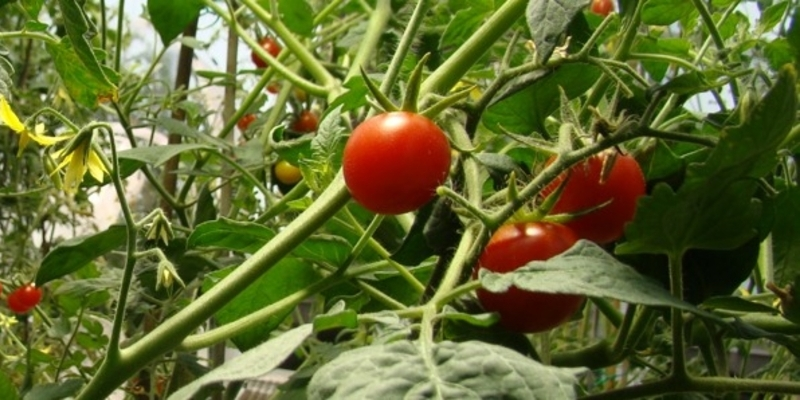Vaccinations have been saving lives since the 1880’s. Polio, smallpox, and yellow fever have all been eliminated from the United States thanks to vaccinations, and millions of Americans get flu shots every year in order to stay healthy during the cold months. Deep in the middle of flu season, I had the pleasure of meeting with Dr. Indu Rupassara and Dr. Dennis Buetow, founders of a brand new player in the world of vaccine development, FruitVaccine.
 Winter is not the favorite time of the year for Dr. Indu Rupassara or Dr. Dennis Buetow, founders of the Research Park startup, especially not cold Illinois winters. Dr. Rupassara grew up and received her bachelor’s degree in Sri Lanka, which she describes as “like Hawaii, but greener,” before studying in Sydney, Australia. Dr. Buetow lived in California, studying at the beautiful Hollywood set of a campus known as UCLA, receiving both his bachelor’s and doctorate there. They met at the University of Illinois as Dr. Rupassara pursued her doctorate and Dr. Buetow was a faculty member of the department of physiology. They immediately hit it off and have been close ever since. “Dennis is like family,” Dr. Rupassara said gesturing to her business partner.
Winter is not the favorite time of the year for Dr. Indu Rupassara or Dr. Dennis Buetow, founders of the Research Park startup, especially not cold Illinois winters. Dr. Rupassara grew up and received her bachelor’s degree in Sri Lanka, which she describes as “like Hawaii, but greener,” before studying in Sydney, Australia. Dr. Buetow lived in California, studying at the beautiful Hollywood set of a campus known as UCLA, receiving both his bachelor’s and doctorate there. They met at the University of Illinois as Dr. Rupassara pursued her doctorate and Dr. Buetow was a faculty member of the department of physiology. They immediately hit it off and have been close ever since. “Dennis is like family,” Dr. Rupassara said gesturing to her business partner.
 FruitVaccine is a new incarnation of many years of work from both founders. Dr. Buetow, has spent decades of his life researching human respiratory synctial virus (RSV). This research comes from a very personal place. Dr. Buetow’s wife Dr. Kathleen Buetow, herself a pediatrician, has seen firsthand how RSV can harm young children. RSV is a virus that affects the lungs. Because the symptoms of RSV are similar to the flu, the virus is often misdiagnosed. If the virus isn’t properly treated it can lead to bronchitis or pneumonia, which is devastating to young children. Although RSV affects about 60 percent of children between the ages of 2 and 3 there is no current vaccine to prevent it. Dr. Rupassara joined Dr. Buetow in 2011 to try to develop a vaccine for RSV. Together they decided to not only develop a vaccine for RSV, but to put that vaccine into a tomato. Thus, FruitVaccine was founded in January 2017, hoping to develop the first RSV vaccine and the first edible vaccine all in one.
FruitVaccine is a new incarnation of many years of work from both founders. Dr. Buetow, has spent decades of his life researching human respiratory synctial virus (RSV). This research comes from a very personal place. Dr. Buetow’s wife Dr. Kathleen Buetow, herself a pediatrician, has seen firsthand how RSV can harm young children. RSV is a virus that affects the lungs. Because the symptoms of RSV are similar to the flu, the virus is often misdiagnosed. If the virus isn’t properly treated it can lead to bronchitis or pneumonia, which is devastating to young children. Although RSV affects about 60 percent of children between the ages of 2 and 3 there is no current vaccine to prevent it. Dr. Rupassara joined Dr. Buetow in 2011 to try to develop a vaccine for RSV. Together they decided to not only develop a vaccine for RSV, but to put that vaccine into a tomato. Thus, FruitVaccine was founded in January 2017, hoping to develop the first RSV vaccine and the first edible vaccine all in one.
Edible vaccines are plants, typically fruits or vegetables that are engineered to vaccinate whoever eats them. They were first conceived of in the early 90’s as a safer and easier way to immunize children in the poorer areas of the world. Traditional vaccines require trained medical professionals to administer them, long distance transportation in cold environments, and they have the risk of infection with syringes. Edible vaccines offer the ability to grow vaccines locally, without the need for professionals or the risk of infection.

The FruitVaccine founders walked me through the process of creating an edible vaccine. First, the gene that will produce the vaccine is introduced into a kind of bacteria called agrobacterium. Agrobacterium is useful because it can transfer genes into plant cells. This agrobacterium attaches the vaccine gene into the tomato’s DNA and then the tomato plant will produce the vaccine naturally. The vaccine itself is called a sub-unit vaccine. This means that only a part of the virus is used to immunize the body. Some vaccines use entire viruses that are deactivated, but still have a small risk of infecting the patient. Sub-unit vaccines have virtually no risk of this happening.
Why choose tomatoes as a vessel for their vaccine? “Originally the plan was apples,” Dr. Buetow informed me, “because children like apples.” A problem soon became apparent however; it takes at around 3 years for an apple tree to bear fruit. This led the team to move towards tomatoes because of their short gestation period, and, as Dr. Kathleen Buetow attests, most children like tomatoes too.
What could be the biggest obstacle in the development of this groundbreaking science? “Politics,” responded Dr. Rupassara. It seems that genetically modified organism (GMO) is a controversial phrase in today’s political climate, and being in the business of GMOs involves a lot of red tape. Because of this, FruitVaccine is ensuring that there is no cross pollination with non-modified tomato plants by isolating the modified plants in greenhouses.
So far, FruitVaccine has had a strong first year as a business. Successful trials have been performed on mice, and the team is looking to continue on to trials on other animals and eventually humans. The future is bright and the founders of FruitVaccine are ready to expand in many different ways. They are planning to incorporate vaccines in other kinds of fruits and vegetables such as strawberries or carrots. They are also looking to develop oral drops that would be easier for infants to consume than entire fruits as well. Long term the goal is to not only create an edible RSV vaccine, but to develop many different edible vaccines for different viruses.
To find out more about FruitVaccine or to support the project, please visit their website.








